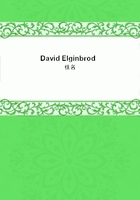
第177章
Would that every woman believed in the ideal of herself, and hoped for it as the will of God, not merely as the goal of her own purest ambition! But even if the lower development of the hope were all she possessed, it would yet be well; for its inevitable failure would soon develope the higher and triumphant hope.
He thought about her till he fell asleep, and dreamed about her till he woke. Not for a moment, however, did he fancy he was in love with her: the feeling was different from any he had hitherto recognized as embodying that passion. It was the recognition and consequent admiration of a beauty which everyone who beheld it must recognize and admire; but mingled, in his case, with old and precious memories, doubly dear now in the increased earnestness of his nature and aspirations, and with a deep personal interest from the fact that, however little, he had yet contributed a portion of the vital food whereby the gracious creature had become what she was.
In the so-called morning he went to Mrs. Elton's. Euphra was expecting his visit, and he was shown up into her room, where she was lying on a couch by the fire. She received him with the warmth of gratitude added to that of friendship. Her face was pale and thin, but her eyes were brilliant. She did not appear at first sight to be very ill: but the depth and reality of her sickness grew upon him. Behind her couch stood Margaret, like a guardian angel.
Margaret could bear the day, for she belonged to it; and therefore she looked more beautiful still than by the lamp-light. Euphra held out a pale little hand to Hugh, and before she withdrew it, led Hugh's towards Margaret. Their hands joined. How different to Hugh was the touch of the two hands! Life, strength, persistency in the one: languor, feebleness, and fading in the other.
"I can never thank you enough," said Euphra; "therefore I will not try. It is no bondage to remain your debtor.""That would be thanks indeed, if I had done anything.""I have found out another mystery," Euphra resumed, after a pause.
"I am sorry to hear it," answered he. "I fear there will be no mysteries left by-and-by.""No fear of that," she rejoined, "so long as the angels come down to men." And she turned towards Margaret as she spoke.
Margaret smiled. In the compliment she felt only the kindness.
Hugh looked at her. She turned away, and found something to do at the other side of the room.
"What mystery, then, have you destroyed?"
"Not destroyed it; for the mystery of courage remains. I was the wicked ghost that night in the Ghost's Walk, you know--the white one: there is the good ghost, the nun, the black one.""Who? Margaret?"
"Yes, indeed. She has just been confessing it to me. I had my two angels, as one whose fate was undetermined; my evil angel in the count--my good angel in Margaret. Little did I think then that the holy powers were watching me in her. I knew the evil one; I knew nothing of the good. I suppose it is so with a great many people."Hugh sat silent in astonishment. Margaret, then, had been at Arnstead with Mrs. Elton all the time. It was herself he had seen in the study.
"Did you suspect me, Margaret?" resumed Euphra, turning towards her where she sat at the window.
"Not in the least. I only knew that something was wrong about the house; that some being was terrifying the servants, and poor Harry;and I resolved to do my best to meet it, especially if it should be anything of a ghostly kind.""Then you do believe in such appearances?" said Hugh.
"I have never met anything of the sort yet. I don't know.""And you were not afraid?"
"Not much. I am never really afraid of anything. Why should I be?"No justification of fear was suggested either by Hugh or by Euphra.
They felt the dignity of nature that lifted Margaret above the region of fear.
"Come and see me again soon," said Euphra, as Hugh rose to go.
He promised.
Next day he dined by invitation with Mrs. Elton and Harry. Euphra was unable to see him, but sent a kind message by Margaret as he was taking his leave. He had been fearing that he should not see Margaret; and when she did appear he was the more delighted; but the interview was necessarily short.
He called the next day, and saw neither Euphra nor Margaret. She was no better. Mrs. Elton said the physicians could discover no definite disease either of the lungs or of any other organ. Yet life seemed sinking. Margaret thought that the conflict which she had passed through, had exhausted her vitality; that, had she yielded, she might have lived a slave; but that now, perhaps, she must die a free woman.
Her continued illness made Hugh still more anxious to find the ring, for he knew it would please her much. Falconer would have applied to the police, but he feared that the man would vanish from London, upon the least suspicion that he was watched. They held many consultations on the subject.